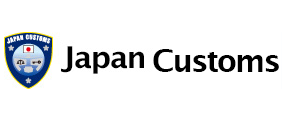4016 Outline of the Japan-Indonesia Economic Partnership Agreement
On November 2006, Japan and Indonesia jointly announced that agreement in principle has been reached between the Japanese side and the Indonesia side on all major elements of the Japan-Indonesia Economic Partnership Agreement (hereinafter referred to as the "JIEPA"), on the basis of a series of negotiations since July 2005. The JIEPA was entry into force on July 2008.
The JIEPA became the sixth economic partnership agreement, following those concluded with Singapore, Mexico, Malaysia, Chile, and Thailand.
1. Summary of the Agreement
The JIEPA will cover wide-scope of areas with a view to strengthening the economic partnership between our two countries, including cooperation for capacity-building with participation of our respective industries; liberalization, promotion and facilitation of trade and investment aimed at increasing the cross-border flows of goods, investment and services; and facilitation of the movement of natural personsbetween our two countries.
2. The significance of the Agreement for Japan
Indonesia is Japan's 12th export partner and 10th import partner (2023 Trade Statistics, Ministry of Finance). The JIEPA will promote the liberalization and facilitation of trade and investment between the two countries and that the economies of the two countries will be further vitalized through the establishment of a reciprocal economic partnership in wide-ranging fields. Furthermore, it provides for the arrangement for trade and investment in the energy and mineral resources sector aimed, inter alia, at ensuring energy security in both countries. Such arrangement serves to protect and expand interests and opportunities for investments in both countries in this sector, including that of electric power generation, exploration and exploitation of oil and gas and mineral resources.
3. The key elements in the Agreement
(1) Trade in goods: Comprehensive tariff elimination and reduction for mining and industrial products and for agricultural products in bilateral trade
(2) Customs procedures: Guarantee of transparency related to customs-related laws and regulations, rationalization and harmonization of customs procedure and bilateral cooperation and information exchange between customs authorities
(3) Investment: Equal national treatment, most favored nation status, prohibition of demand to execute certain measures, resolution of disputes between investors and national governments and protection of investors and investment properties
(4) Services: Pledge for market access and equal national treatment in specified areas of each country; Most favored nation status granted to service providers of the other signatory nation in areas other than those kept on hold in the Appendix
(5) Movement of people and related cooperation: Pledge to implement measures necessary to facilitate the natural movement of people classified in the category specified in the Appendix, including the quota for acceptance of nurses and nursing care workers
(6) Energy and mineral resources: Cooperation in promoting and facilitating investments, introduction of consultation mechanisms, procedure at introduction of new regulatory measures, and provision of a scheme that contributes to stable supply, such as assurance of transparency in export approval procedures
(7) Intellectual property, greater transparency in intellectual property system, assurance of adequate protection and greater enforcement of intellectual property rights and cooperation in the area of intellectual properties
(8) Competition: Promotion of competition through action against anti-competitive practices and cooperation in the area
(9) Cooperation: Cooperation in the nine areas of manufacturing, agriculture, forestry and fisheries, promotion of trade and investment, human resources development, tourism, information and communication technologies, financial services, government purchasing, and the environment
For consultations on customs procedures, please contact the nearest Customs Counselor.
Please see No. 9301 for inquiries.

